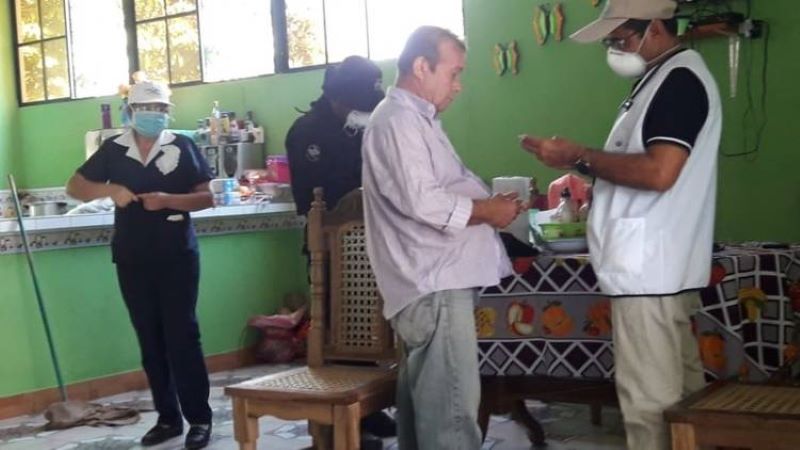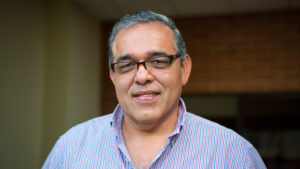Creating a new normal in El Salvador

We can’t return to the normality of before the coronavirus pandemic, says Omar Serrano. When all of this is over, none of us will be the same person we were before.
Without a doubt, the coronavirus pandemic has changed our daily habits around the world. As quarantine progresses and becomes longer, the question that is repeated most often and that seems to occupy everyone’s minds is: when will we return to normal?
People are asking this question all the time. Even the media are talking about it. But we cannot return to the normality of before the pandemic. In fact, we must not allow it. If the coronavirus has taught us anything, the lesson is about what is actually important in life and what isn’t.
Read how coronavirus is affecting El Salvador
Re-evaluating our lives
When all of this is over, none of us will be the same person we were before. Now we have realised that the most important things in life are family, the people we love, friendships, love, health, food and water. After all this, we must re-evaluate our lives. And something similar must happen in public life.
During this pandemic, there has not been a country in the world that has not called on their government to help us face this crisis and to save us. But before, here in El Salvador we had been told that our governments were a hindrance and that the dominant system was being weakened by the government which led to the privatisation of services. We left everything in the hands of the market. Not only trade, but also health, education and food.
This pandemic has shown us that the market does not solve anything when the lives of millions of people are at risk. On the contrary, the market disappears. It helped us build large and luxurious shopping centres that today, when life is in danger, are closed because they are not indispensable. But we neglected the health system. Hospitals, health centres, equipment, even their budgets have been cut. This neglect has left our health systems in the precarious state they are in today.
Help communities rebuild their lives with a monthly donation to the Coronavirus Appeal
The real heroes
We were also told that the most successful people in the world are those who make the most money. Those with the most power. But now we realise that the real heroes are in the hospitals fighting to save lives even at the risk of losing their own. The real heroes are the women, whether they earn a salary or not. It is women who are the main caregivers which is the essential thing right now.
We have been led to believe that the most important thing is trade but we didn’t provide universal access to safe water and sanitation to the communities that needed it. This means that today they are even more vulnerable to the spread of the virus.
We were also told that “cementing over the soil” was progress and so we neglected agriculture and destroyed the environment. So much so, that if this emergency continues, there may be food shortages in our country and in many other places.
Be a sign of hope this summer by fundraising for CAFOD
We cannot go back
This crisis highlights the unjust ways in which we have organised society and the economy. We cannot go back to that, just as each of us cannot go back to being the same person we were before. We must change our society and build a different one, where we safeguard what is most important.
We must build a society where every person has the right to decent work and universal access to clean water and sanitation is guaranteed. We need a strengthened, well-equipped, accessible health system. We also need a universal protection system that recognises – and not only through applause, the work of doctors, teachers and farmers, and grants them the importance and recognition that the market never gave them.
We must strive for a development model that does not destroy the environment, that takes care of our natural resources. That is to say, friends, we cannot afford to return to the “normality” of before. We must create a new normality, a normality in peace, with justice and where we recognise and guarantee what is most important for each person and each family”.
About Omar Serrano

Omar Serrano is the Vice-Rector of Social Outreach at the University of Central America (UCA) in San Salvador, El Salvador. The Jesuit-run university provides a focus for intellectual, moral and social action for the poor. Throughout the armed conflict in El Salvador, the university was a leading force in defending human rights and an outspoken opponent of the state-sponsored military oppression.
Today the university plays a key role in advocating for pro-poor social policies and holding the government and authorities to account. It works closely with the wider Church on issues such as access to clean water, protection of the environment and safe housing.